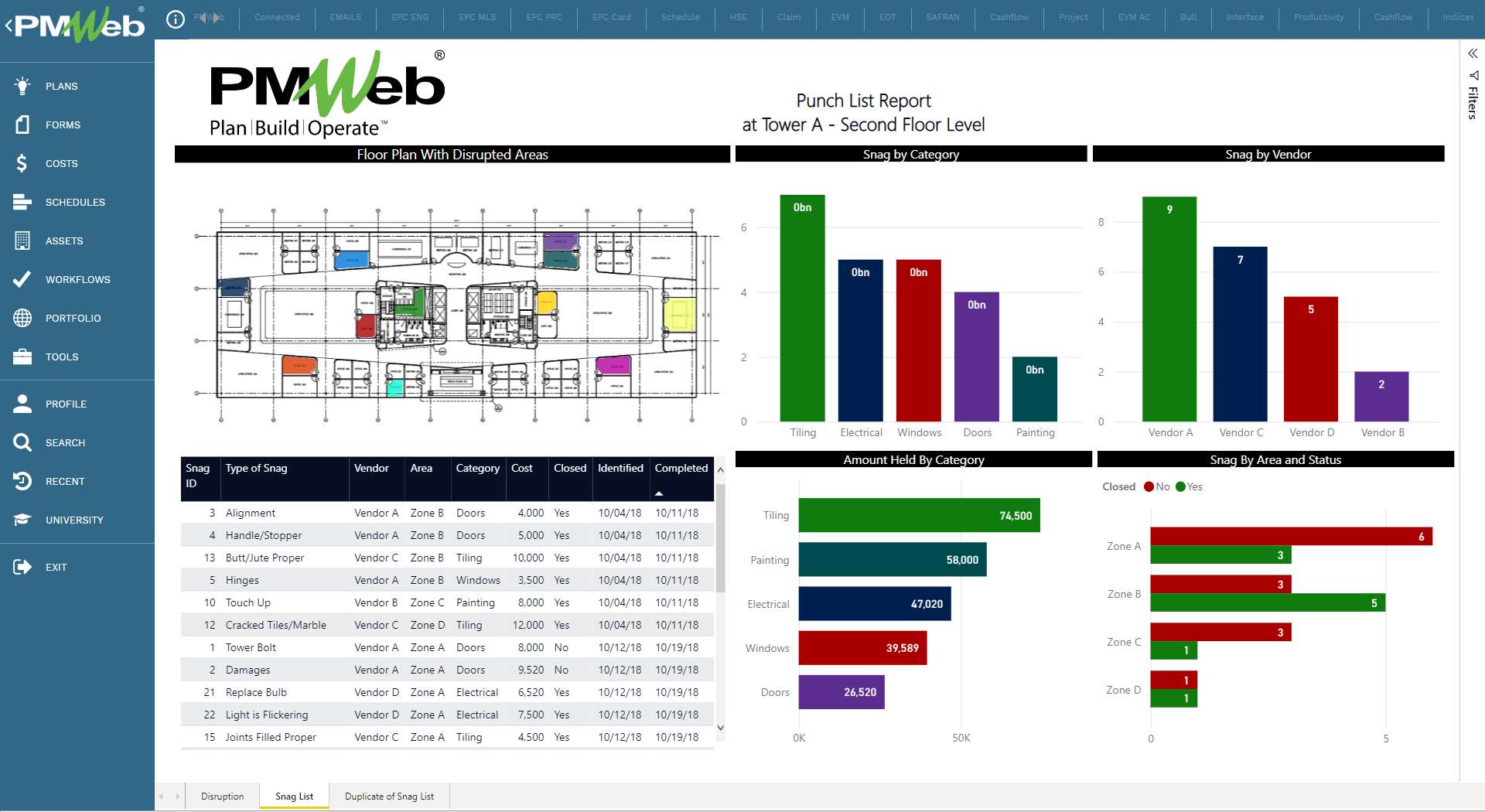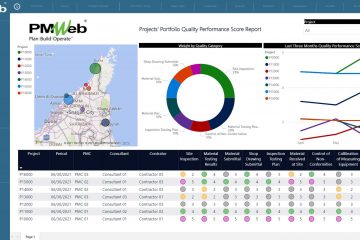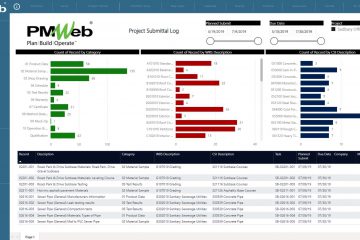In construction projects, a snag list (occasionally referred to as a punch list) defines the process of inspection necessary to compile a list of minor defects or omissions in building works for the contractor to rectify. The faults that are identified in the snag list should be rectified prior to issuing the certificate of practical completion by the project owner.
Nevertheless, the snag list can be used in a more proactive approach when it becomes an observation report that will be used throughout the whole construction duration as it will include every single defect or omission that had been identified by the project team and need to be rectified. This proactive use of the snag list can pave the way for smooth collaboration between the project owner, consultant, contractor, and subcontractors to ensure a speedy issuance of the project’s certificate of practical completion.
Most project management information systems (PMIS) including PMWeb has a snag list or punch list as one of their many default project management modules. For each project, there is no limit to the number of snag lists that can be created. To ensure the adoption of this recommended proactive snag list approach, a snag list will be created for each project owner and consultant team member that have a role in inspecting the building works. This will enable them to capture, compile and report on all minor defects or omissions identified by them while being on the project site. PMWeb snag list module can be accessed from any browser running on any device including iPad among other mobile devices. Using those mobile devices that usually have the option of “Speech to Text”, the user can state the description of the snag list item which will be typed in automatically in PMWeb.
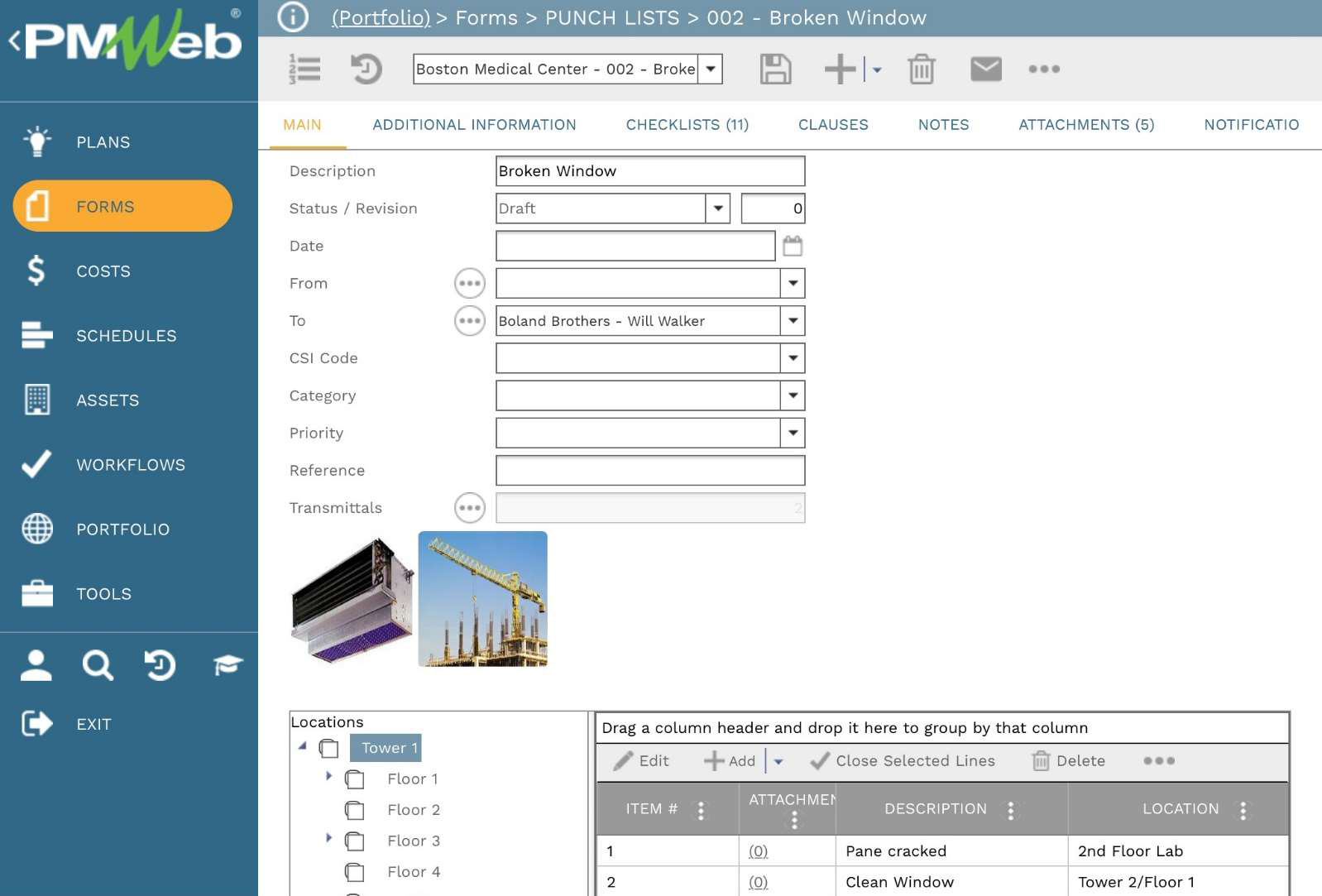
All documents and pictures that are relevant to a reported snag list item need to be attached to the snag list item. When using a mobile device with a camera like iPad, when the user clicks on the attach button, the user will be given the option to take a picture or video. PMWeb viewer can be also used to add comments and remarks to those documents when needed. The project team can append the attachment list with other documents as well as link other PMWeb records and imported email communications.
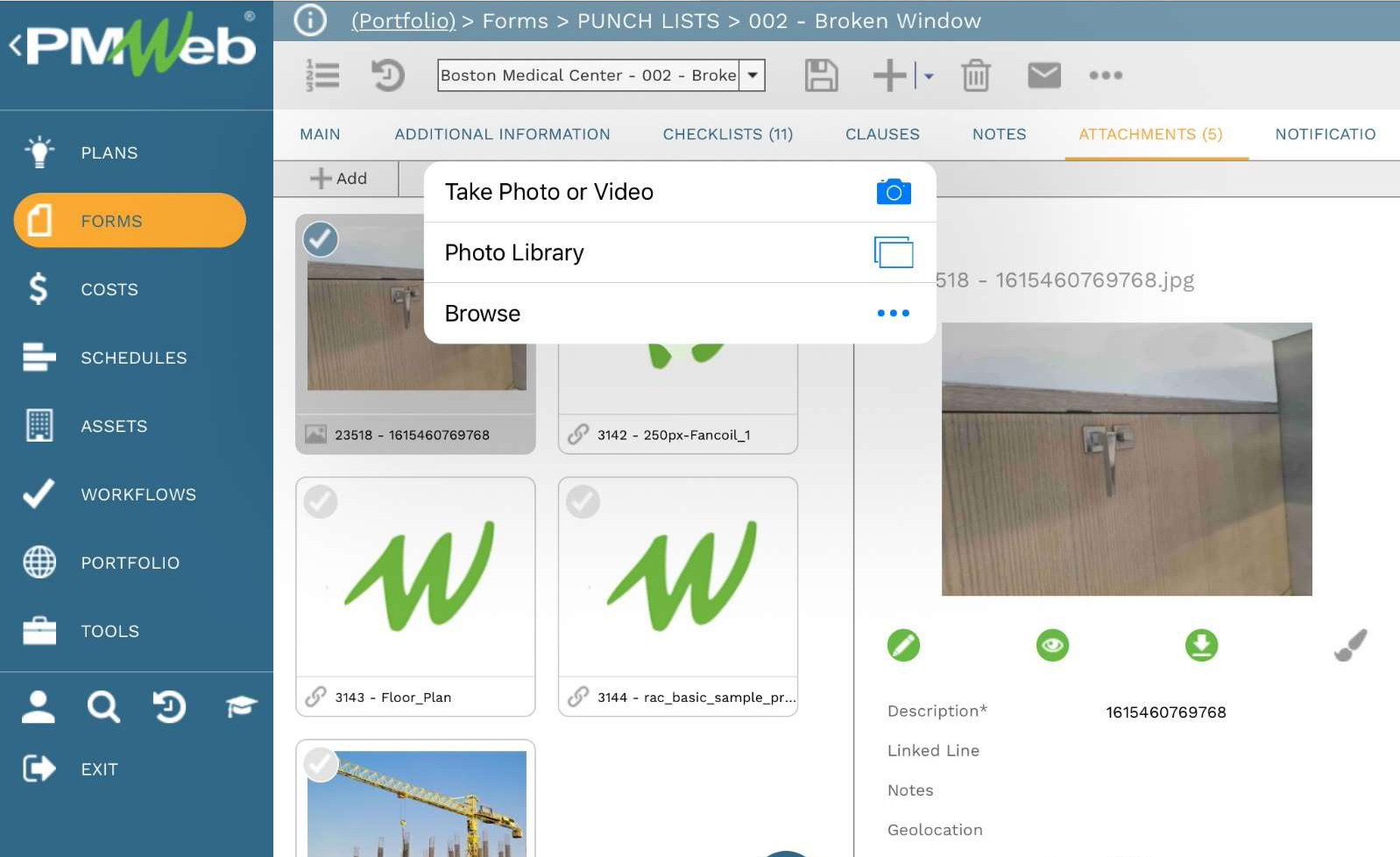
To ensure that the snag list is distributed to the right project team members which would usually include the contractor and other stakeholders that need to be kept informed of the reported defects and omissions, a workflow can be pre-defined that will include all the review and approval tasks. PMWeb allows capturing the actual dates for performing those tasks and comments made by each reviewer.
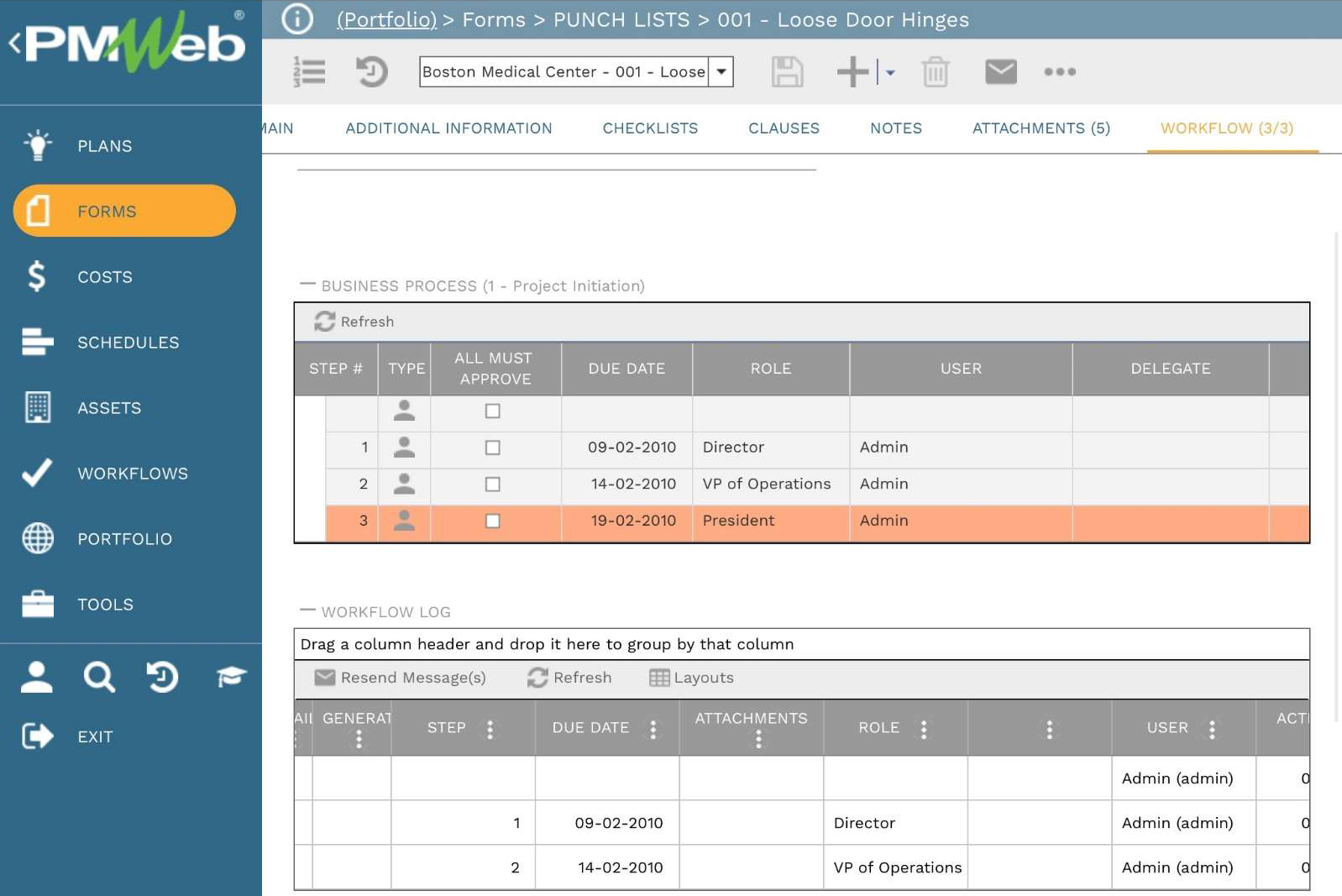
For those stakeholders who are either not part of the predefined workflow steps or do not have access to the PMWeb platform, the project team member can share the snag list report with those stakeholders using PMWeb notification option. PMWeb will automatically record details of those issued notifications on the snag list record.
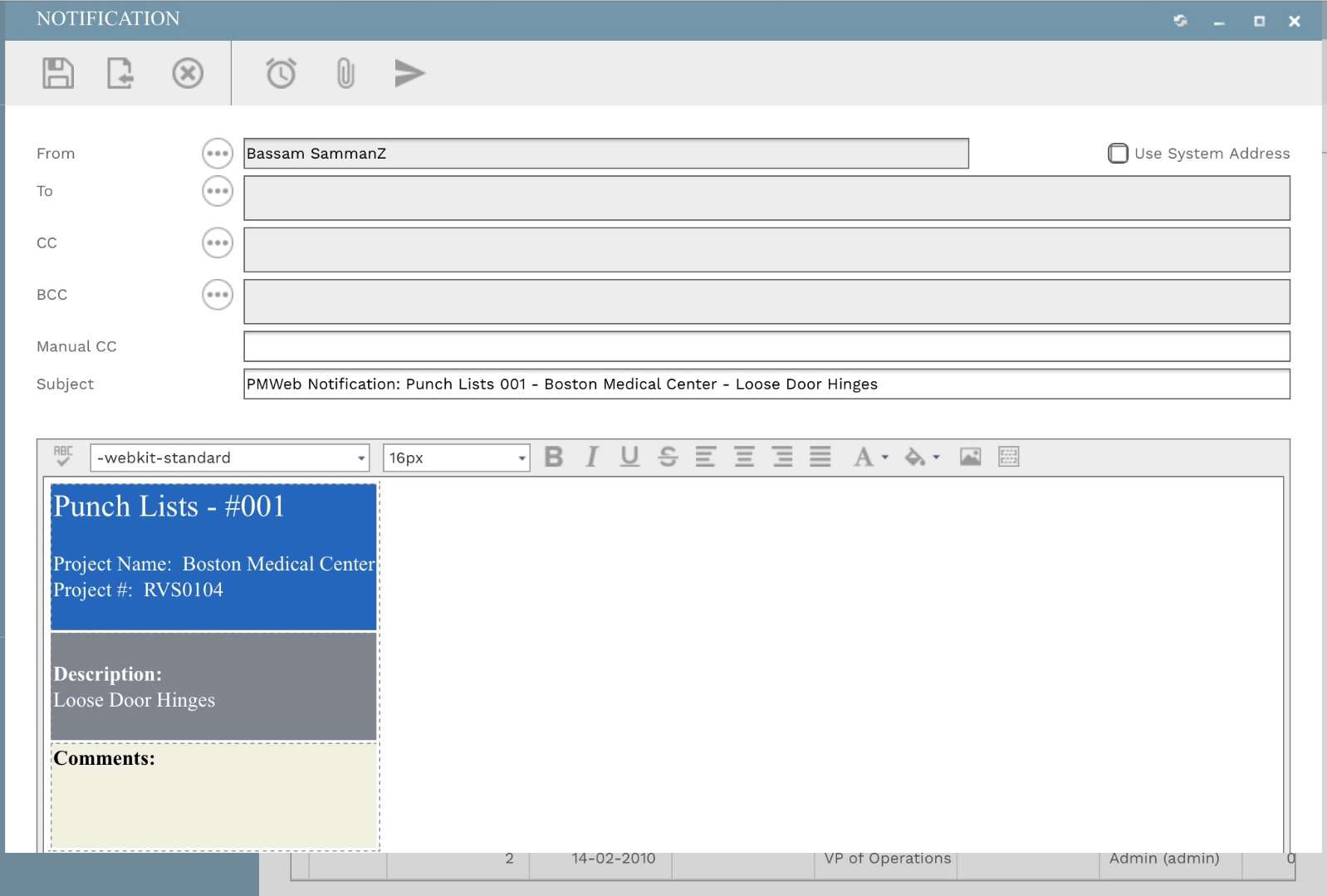
Similar to all other PMWeb modules, the snag list prepared by each project team member can be formally communicated using the default snag list form which can be also designed in any desired form and format to reflect the project branding and other requirements.
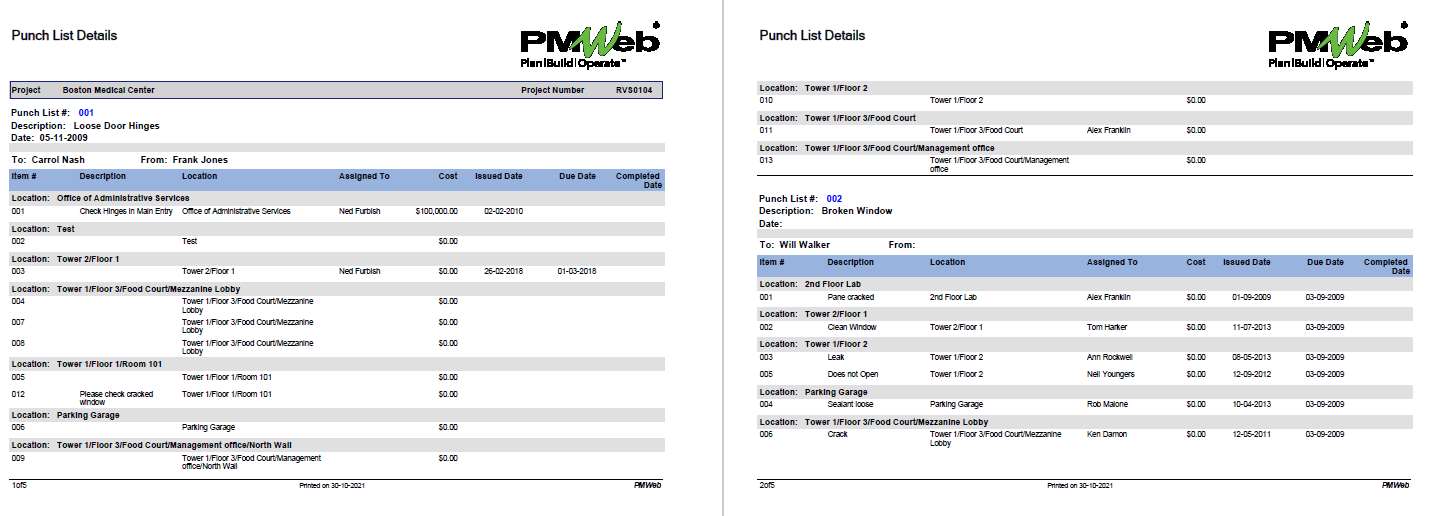
The defects and omissions reported by the different project team members will be consolidated on a single report and will become available for the project management to view. The reported defects and omissions can be grouped by their work category, location, reported by who, the responsibility of who to rectify, number of overdue defects and omissions, and any other attribute used while capturing this information.
